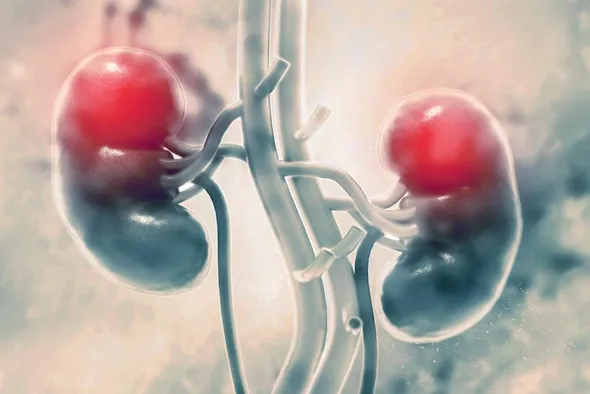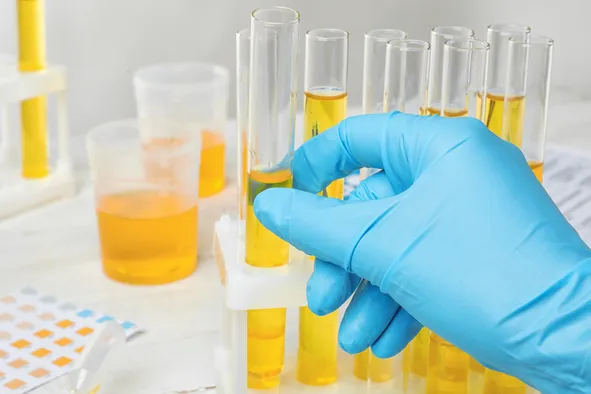Serum creatinine is the most commonly used screening test for renal failure. This test measures how well your kidneys are working and how well blood is flowing to them.
Creatinine is a waste product that comes from normal muscle use and from meat protein in your diet. Healthy kidneys remove creatinine from the blood. It then passes out of your body through urine.

Dehydration does cause the serum creatinine to rise and the estimated glomerular filtration rate (EGFR) will, accordingly, fall. The degree of change is generally proportional to the degree of dehydration, about 60-70% of your body weight is made up of water, and every part of your body needs it to function properly. Dehydration happens when you lose an excessive amount of this important body water.
Symptoms
Thirst isn’t always a reliable early indicator of the body’s need for water. Many people, particularly older adults, don’t feel thirsty until they’re already dehydrated. That’s why it’s important to increase water intake during hot weather or when you’re ill.
- Extreme thirst
Drinking lots of water is healthy in most cases. The urge to drink too much may be the result of physical or emotional disease. Excessive thirst may be a symptom of high blood sugar (hyperglycemia), which may help in detecting diabetes. Excessive thirst is a common symptom. It is often the reaction to fluid loss during exercise or to eating salty foods.
- Less frequent urination
Frequent urination can be a symptom of many different problems from kidney disease to simply drinking too much fluid. When frequent urination is accompanied by fever, an urgent need to urinate, and pain or discomfort in the abdomen, you may have a urinary tract infection.
- Dark-colored urine

Dark urine is deeper in color than urine that is usually straw to yellow in color. Darker urine can be different colors but is usually brown, deep yellow, or maroon. Urine is produced in the kidneys. When you take in fluid or food, it passes from your digestive system, into your circulatory system, and into your kidneys where it is filtered. The kidneys then get rid of waste products and extra fluid through the urine.
- Fatigue

Fatigue is different from drowsiness. Drowsiness is feeling the need to sleep. Fatigue is a lack of energy and motivation. Drowsiness and apathy (a feeling of not caring about what happens) can be symptoms that go along with fatigue. Fatigue can be a normal and important response to physical activity, emotional stress, boredom, or lack of sleep. Fatigue is a common symptom, and it is usually not due to a serious disease. But it can be a sign of a more serious mental or physical condition. When fatigue is not relieved by enough sleep, good nutrition, or a low-stress environment, it should be evaluated by your health care provider.
- Dizziness
Dizziness is a term used to describe a range of sensations, such as feeling faint, woozy, weak, or unsteady. Dizziness that creates the false sense that you or your surroundings are spinning or moving is called vertigo. Dizziness is one of the more common reasons adults visit their doctors. Frequent dizzy spells or constant dizziness can significantly affect your life and it can be a reason for dehydration. But dizziness rarely signals a life-threatening condition.
.

